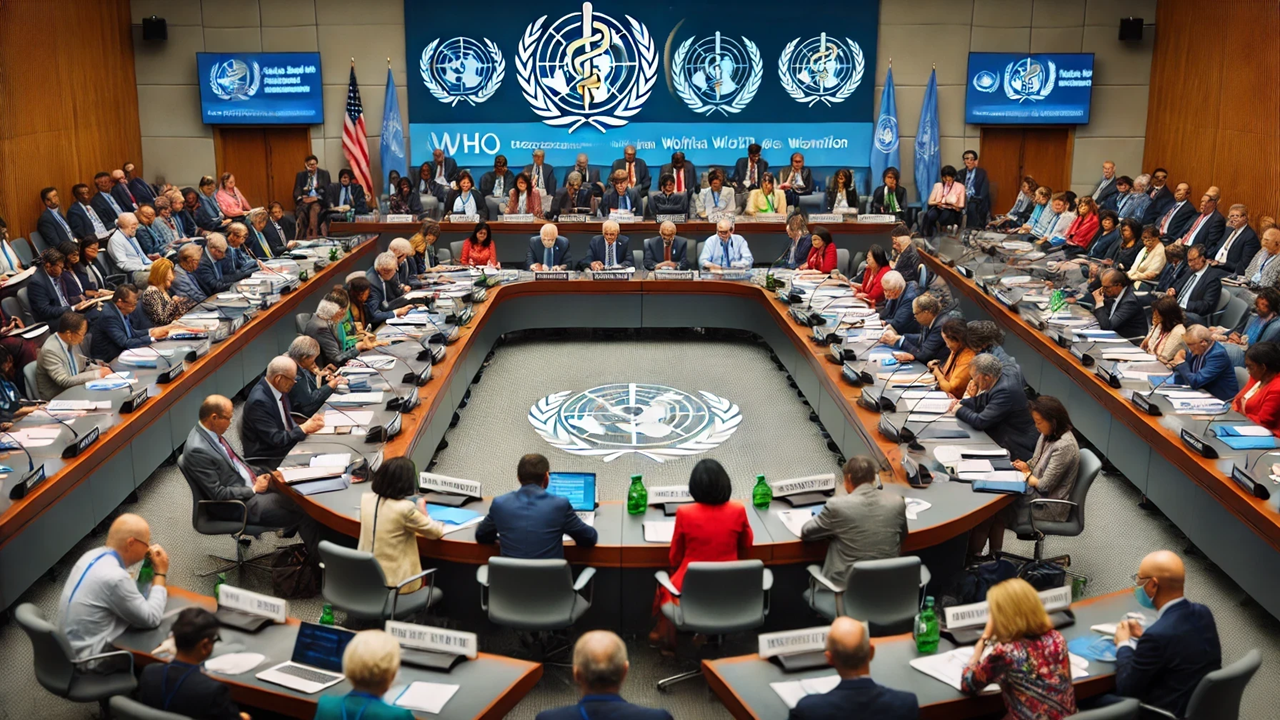Accelerating Health for All: Western Pacific Nations Unite to Drive Universal Health Coverage by 2030
The Seventh Meeting of the Technical Advisory Group on Universal Health Coverage in the Western Pacific Region highlighted critical strategies to accelerate UHC progress. Key areas of focus included transformative primary health care, sustainable funding, building a future-ready health workforce, and leveraging digital health technologies. The meeting emphasized the importance of continuous collaboration, political commitment, and evidence-based decision-making to achieve the health-related Sustainable Development Goals by 2030.

In April 2024, health leaders from across the Western Pacific gathered in Manila, Philippines, for a critical meeting aimed at advancing the region's health agenda. The Seventh Meeting of the Technical Advisory Group on Universal Health Coverage (UHC TAG) brought together 127 representatives from 24 Member States, along with experts, WHO staff, and development partners. Their mission was clear: to accelerate progress toward Universal Health Coverage (UHC) and meet the health-related Sustainable Development Goals (SDGs) by 2030.
A Region United for Health
Under the theme “Country Focus and Impact: Accelerating UHC to Achieve the Health SDG by 2030,” the meeting addressed the urgent need to bolster health systems across the region. Participants shared insights and experiences, identifying key areas that require immediate action. The meeting underscored the importance of a collaborative approach, where nations work together to overcome challenges and share best practices.
Four critical areas were identified as pivotal to advancing UHC in the region: transformative primary health care (PHC), sustainable funding, a future-ready health workforce, and the strategic use of digital health technologies.
Transformative Primary Health Care: The Foundation of UHC
Primary Health Care (PHC) emerged as a cornerstone for achieving UHC. The meeting emphasized the need for a shared vision among member states, focusing on a PHC-centered approach. This vision includes a robust workforce, strong digital infrastructure, and active community engagement. Evidence-based investments are crucial to ensuring that PHC can effectively address the diverse health needs of the region’s populations.
The discussions highlighted that PHC is not just about treating diseases but also about preventing them. This approach requires strong community involvement, where local populations are empowered to take control of their health. Countries were encouraged to prioritize PHC in their health strategies, ensuring that services are accessible, equitable, and integrated into the broader health system.
Sustainable Funding and Financial Protection: The Lifeline of UHC
Sustainable funding and financial protection are essential to maintaining the momentum toward UHC. The meeting stressed the importance of equitable health spending and efficient resource mobilization. Innovative financing mechanisms were discussed as vital tools for ensuring that health systems are adequately funded and can provide financial protection to all citizens.
Participants agreed that without sustainable financing, the progress toward UHC could stall. They called for greater political commitment to health investments and the exploration of new funding avenues. Ensuring that health spending is both equitable and efficient will be key to achieving the health-related SDGs by 2030.
Building a Future-Ready Health Workforce: The Heart of Health Systems
A future-ready health workforce was identified as critical to the success of UHC. The region faces challenges in building a well-distributed, high-quality workforce that can meet the evolving health needs of its population. The meeting highlighted the necessity of aligning workforce development with health system requirements, ensuring that health professionals are not only well-trained but also strategically placed where they are most needed.
Participants discussed the importance of investing in the health workforce, particularly in rural and underserved areas. Building capacity and providing continuous education and training are essential to creating a workforce that is adaptable, resilient, and capable of delivering high-quality care.
Leveraging Digital Health and Technology: Expanding Coverage and Quality
Digital health and technology were recognized as powerful enablers of UHC. The meeting acknowledged the potential of digital tools to expand service coverage, improve the quality of care, and address workforce shortages. Countries were encouraged to explore digital health interventions tailored to their specific needs, leveraging technology to bridge gaps in service delivery and enhance health outcomes.
The discussions highlighted that digital health is not just about adopting new technologies but also about ensuring that these technologies are accessible and integrated into the health system. The effective use of digital health can play a transformative role in achieving UHC, particularly in remote and resource-constrained settings.
A Call for Continuous Collaboration and Action
The Seventh Meeting of the UHC TAG concluded with a call for continuous collaboration among Member States, WHO, and other stakeholders. The importance of fostering political commitment, strengthening partnerships, and utilizing adaptable frameworks and guidance was emphasized. The meeting also called for more robust research and data collection to inform decision-making and ensure that health strategies are evidence-based and context-specific.
Member States were urged to conduct in-depth analyses of UHC facilitators and barriers, strengthen PHC with a focus on prevention and community engagement, and leverage political economy considerations to secure health investments. The WHO Secretariat was requested to support these efforts by fostering political engagement, providing technical assistance, and establishing platforms for knowledge sharing and collaboration.
As the region moves forward, the commitment to UHC remains unwavering. The path to achieving the health-related SDGs by 2030 is challenging, but with a united effort, the vision of Health for All can become a reality.
- FIRST PUBLISHED IN:
- Devdiscourse










